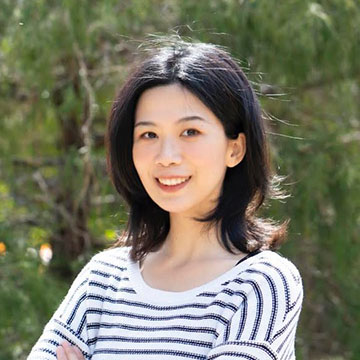All ReVAMP Scientists
ReVAMP Network Scientists
Alessio Paolini
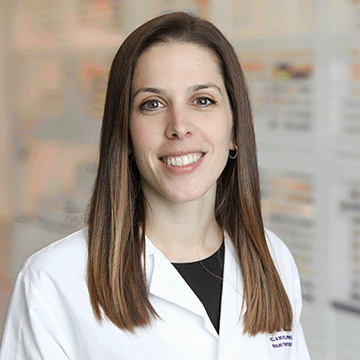
Ana Mompeón
Read BioAna is a post-doctoral fellow in the laboratory of Dr. Luisa Iruela-Arispe at the Feinberg School of Medicine - Northwestern University (Chicago). She is particularly interested in the dysregulation of the RAS-MAPK signaling pathway and its role in the formation of vascular anomalies. Her research focuses on understanding the molecular mechanisms induced by mutations in the RASA1 gene in endothelial cells and how they result in the emergence of vascular malformations in the context of flow. As a graduate student at the University of Valencia (Spain), Ana's PhD work focused on the role of circulating microRNAs in acute myocardial infarction and endothelial cell function. She was also involved in the effects of estrogen in the regulation of endothelial-derived mediators and age-associated vascular dysfunction.

Ana Valero
Read Bio
Angela Queisser
Read Bio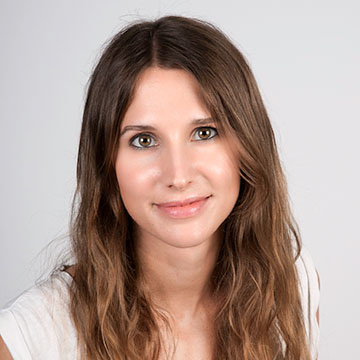
Astrid Hagelkrüys
Read Bio
Chaker Aloui
Read BioChaker Aloui received a Bachelor's degree in Medical Biotechnologies from the University of Monastir, Tunisia in 2010 and a PhD from the University of Saint-Etienne in France. He currently serves as a Computational Genomics Scientist at INSERM in the GenMedStroke team headed by Professor Elisabeth Tournier-Lasserve. His research focuses on the identification of novel genes and pathways involved in cerebrovascular diseases, mainly in cerebral small vessel diseases (CSVDs) and moyamoya angiopathies. Chaker is combining various pan-genomic approaches with statistical methods on big-data issued from high throughput sequencing. His areas of expertise include medical genetics, rare disease, burden tests, exome and genome sequencing, RNA-seq, and bioinformatics.
Publications:
https://pubmed-ncbi-nlm-nih-gov.proxy.insermbiblio.inist.fr/?term=aloui+c
https://www.researchgate.net/profile/Chaker-Aloui-2

Claudia Rödel
Read BioClaudia Rödel started her scientific career studying the mechanisms of body axis formation in Drosophila melanogaster and graduated at the Georg-August University of Göttingen in 2011. Shortly after, she started a post-doctoral fellowship in the lab of Dr. Dimitris Beis at the BRFAA in Athens Greece, who introduced her to the fascinating world of the zebrafish. With Dimitris, Claudia started a project about the influence of blood flow on the endothelial cell behavior using pharmacological manipulations and transcriptomic analyses. She realized that the zebrafish model was an immensely powerful tool to understand vascular health and disease, because it incorporates the complexity of a complete and fully functional cardiovascular system, while being a simpler vascular tree. Furthermore, the zebrafish is extremely amenable to manipulation and live imaging techniques, which allows us to simply observe endothelial cells, especially when they misbehave!
In 2015, she joined Salim Seyfried's lab as a postdoctoral fellow to further pursue her research on endothelial cell biology and started to work on a rare neurovascular disease, cerebral cavernous malformations (CCM). What fascinates her most in this disease are the triggers that are not of genetic origin, but stem from other cues such as blood flow, flow pattern and other biophysical factors.
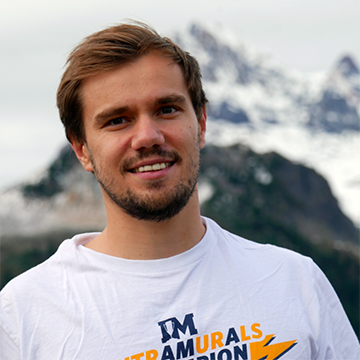
Clement Quintard
Read Bio
Cuong Van Pham
Read Bio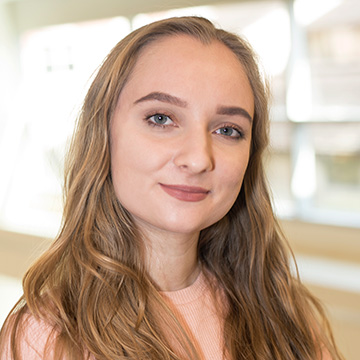
Dinara Sharipova
Read BioDinara Sharipova began her scientific career at Novosibirsk State University in Russia, where she earned her bachelor’s and master’s degrees in cell biology and genetics in 2019. During her studies, she investigated the mechanisms of neurodegenerative disorders, developing patient-specific iPSC-based cell models for Huntington’s and Parkinson’s diseases. While her primary interest was in biomedical research, she also developed a strong interest in developmental biology.
To pursue this interest and explore new model organisms and methods, Dinara completed an internship at the Max Planck Institute of Cell Biology and Genetics in Dresden, working in the lab of Prof. Dr. Nadine Vastenhouw. There, she studied zebrafish transcription factors, sparking her fascination with zebrafish as a model organism.
Following her master's degree, she expanded her research scope to cancer biology by interning at Fox Chase Cancer Center in Philadelphia, USA, under the supervision of Prof. Dr. Lori Rink. Her work there focused on the mechanisms of drug resistance in gastrointestinal stromal tumors.
In 2021, Dinara joined Salim Seyfried’s lab at the University of Potsdam as a PhD student to pursue a research project that combines her interests in biomedicine and developmental biology. Her current research focuses on the role of nitric oxide signaling in zebrafish outflow tract development and elucidating the causes of bicuspid aortic valve disease using zebrafish as a model organism.

Elisabeth Tournier-Lasserve, MD
Read Bio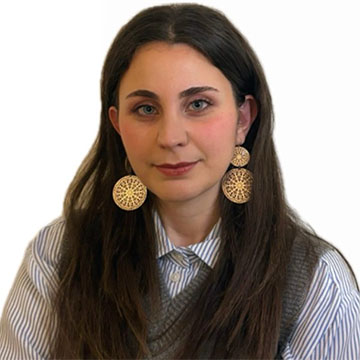
Elissa Khadra
Read BioPassionate about leveraging computational Biology to advance research projects and bridge the gap between data analysis and Biological discovery.
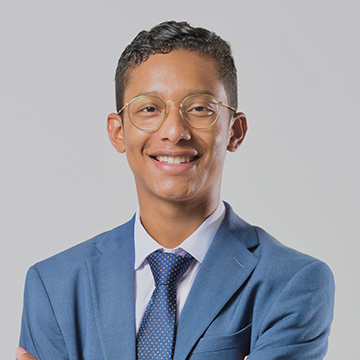
Emanuel Tenorio
Read BioI previously worked at Revilla-i-Domingo Lab, where they try to unveil the mechanisms involved in sponge tissue regeneration and their evolutionary relationships.
For my master thesis, I joined the Penninger Lab, which mainly focuses on understanding and modelling human disease in many different areas. My thesis focused on "Developing Bone Marrow Organoids as an in vitro model for hematopoietic malignancies".
Currently, I’m a PhD Student at the Medical University of Vienna and, together with Josef Penninger, we are diving into unknown scientific territories correlated with vascular and hematopoietic human ontology, as well as with other areas. Therefore, we aim to use vascular-hematopoietic organoids to access unexplored early human developmental processes, comprehend long-term hematopoietic stem cells commitment and provide a convenient instrument for large-scale pharmacological screenings. All to help people and contribute to mankind progress.
Besides science, I enjoy learning languages and, now, I can speak in Spanish, Italian, English, and German. Additionally, I love reading mystery books and traveling.
Eugeniusz Tralle
Gideon Pomeranz
Read BioDr. Gideon Pomeranz is a postdoctoral research fellow in Prof. David Longs group at the University College London Institute of Child Health. His PhD work focused on creating experimental models to study diabetic kidney disease. He did this by replicating the blood vessel organoid protocol and treating them with excess glucose and human diabetic serum. This work was also part of a collaboration between the Long and Penninger lab.
He also used state of the art bioinformatic tools to perform integrative analysis from multiple publicly available single cell RNA-seq datasets to identify a diabetic gene signature. For his postdoctoral work Gideon is focusing on trying to advance the blood vessel organoid by being able to perfuse the vessels using microinjection and xenotransplantation.

Gwenola Boulday
Read BioGyöergy Ullaga
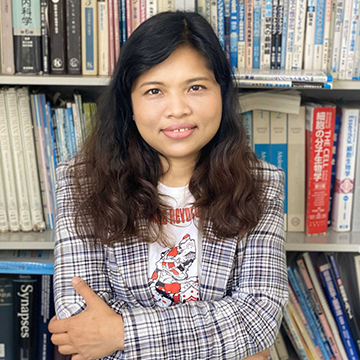
Haymar Wint
Read BioHaymar Wint completed her MD degree at the University of Medicine 2, Yangon, Myanmar in 2009, following which she worked as a medical officer at North Okkala General Hospital. After that, she got her master’s degree in medical Biochemistry in 2017. Subsequently, she was awarded the MEXT scholarship, enabling her to pursue her doctoral studies at Okayama University in Japan, under the guidance of Professor Kohji Takei and Ass. Prof. Tetsuya Takeda, primarily focusing on collective cell migration in cancer metastasis.
Upon the completion of her PhD, Haymar joined Phng lab in Riken, BDR as a postdoctoral researcher, where she continues to dedicate her efforts towards unraveling the complexities of endothelial cell dynamics. Her current research endeavors revolve around investigating the responses of endothelial cells to shear stress and stretch stimuli, operating at both cellular and subcellular levels.
Héloïse Poullet
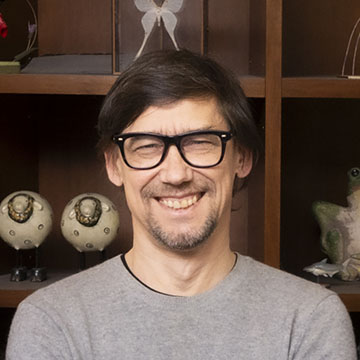
Igor Kondrychyn
Read BioIgor Kondrychyn graduated from Taras Shevchenko National University of Kyiv, followed by three-years postgraduate course in experimental oncology at Kavetsky Institute of Experimental Pathology, Oncology and Radiobiology in Ukraine.
In 2008 he received his PhD in Developmental Biology from the National University of Singapore for his work on the roof plate and central canal morphogenesis in the developing spinal cord of zebrafish in the lab of Prof. Vladimir Korzh at the Institute of Molecular and Cell Biology (IMCB), Singapore. He then continued to work as a Postdoctoral Research Fellow in the same lab, studying a role of zic3 transcription factor in the early embryonic development. In 2013 he moved to the National Center for Biological Sciences (NCBS) in Bangalore, India, where he studied the function of autism risk genes in the zebrafish neurodevelopment.
In May 2017 Igor Kondrychyn joined the Phng lab at RIKEN BDR, Japan as a Research Scientist. His current project is focused on investigating how hydrostatic pressure regulates endothelial cell shape and migration during angiogenesis.
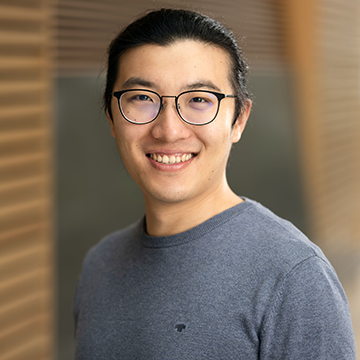
Jie Jiao
Read Bio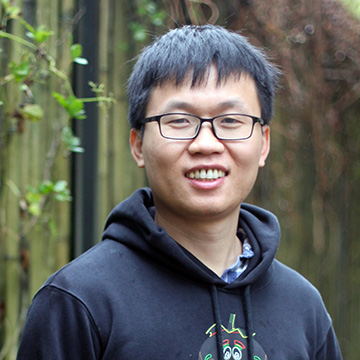
Jingqiang Wang
Read Bio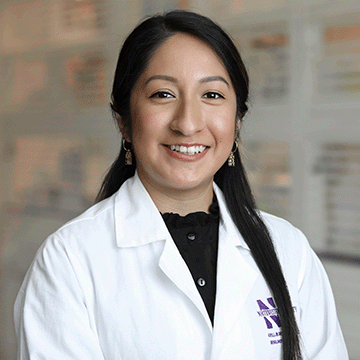
Jocelyn Salvador
Read BioJocelyn Salvador began her PhD studies in the Molecular, Cellular & Integrative Physiology program at UCLA and is now a Postdoctoral Fellow at Northwestern. She graduated from UC Irvine with a degree in biomedical engineering (BS) and then worked as a post-baccalaureate fellow in Dr. George E. Davis' lab where she focused on microtubule dynamics during endothelial morphogenesis using 3D matrices. Jocelyn is interested in EC mechanobiology, especially in the context of fluid shear stress, and in the Arispe lab she is able to combine her interests and expertise to study endothelial cytoskeletal dynamics under different flow conditions in vitro and in vivo, and effects of aging on endothelium.
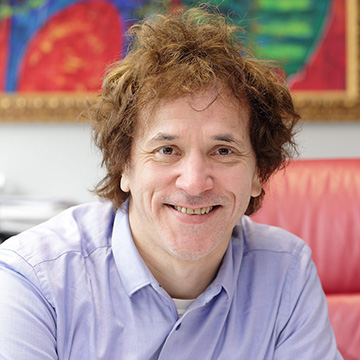
Josef Penninger, MD
Read Bio
Jun Wang
Read Bio
Junseong Lee
Read Bio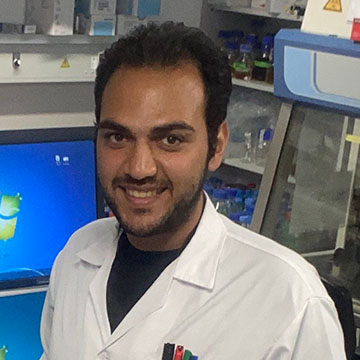
Kasra Kamali
Read BioKasra Kamali began his scientific career in 2014 by studying cellular and molecular biology at the University of Mazandaran (Iran), where he published an article from his bachelor thesis titled 'Evidence of oxidative stress after continuous exposure to Wi-Fi radiation in a rat model.'
Following this, he began his master's degree in pathological microbiology at the same university in 2018, where he was working on a thesis entitled 'The role of Broccoli diet in the qurum sensing and expression of the pathogenic genes in Pseudomnas aeroginosa and effective genes in wound healing in mice.'
In 2020, he enrolled at Friedrich Schiller University Jena (Germany), and in 2022, he joined the Leibniz Institute for Natural Product Research and Infection Biology at the Hans Knöll Institute to pursue his master's degree in the biopilot plant group under the guidance of Prof. M. Rosenbaum and Dr. S. Hengoju. He defended his master's thesis, ‘Droplet-based microfluidic for high-throughput screening of serine protease,’ in 2024.
Kasra joined Salim Seyfried’s lab at the University of Potsdam as a PhD student in 2024 to look into the molecular processes that control growth and shape change, especially in vascular diseases like cerebral cavernous malformations (CCM) and hereditary hemorrhagic telangiectasia (HHT). In addition, he is looking into how the CCM and HHT signaling pathways interact with each other, which will help him see how these vascular abnormalities are controlled at the molecular level. This exploration of the HHT pathway after CCM opens windows for studying their intricate relationship and potentially uncovering novel therapeutic targets.

Kyle Jacobs
Read Bio
Lakyn Mayo
Read BioLori Luo

Li Kun Phng
Read Bio
Lucas Potier
Read BioI am from Belgium. I earned my bachelor's degree in biomedical sciences in 2020 from the University of Namur, and my master's degree in molecular and cellular pathophysiology from UCLouvain in Brussels in 2022. I initially joined the Vikkula lab at the de Duve Institute for a one-year internship as a master's student in February 2021, followed by a four-month internship at KU Leuven, where I worked on viral vector production for gene therapy applications. I later returned to the de Duve Institute, where I have been pursuing my PhD since

Luisa Iruela-Arispe
Read Bio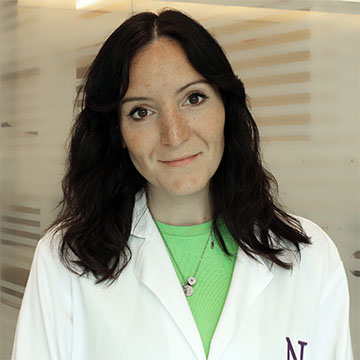
Mariaelena Valentino
Read Bio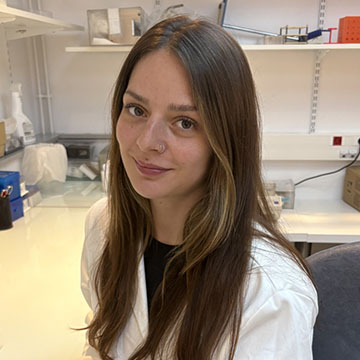
Mathilde Perard
Read BioI gained my first professional experience working at the IRSN (Institute for Radiological Protection and Nuclear Safety), where I studied the side effects of radiotherapy in a rat model.
I recently joined Elisabeth’s team in September 2025 as a biology engineer to contribute to a research project on Moyamoya disease

Matthew Kutys
Read BioMeilin An

Miikka Vikkula
Read Bio
Mingzhao Hu
Read Bio
Nico Werschler
Read Bio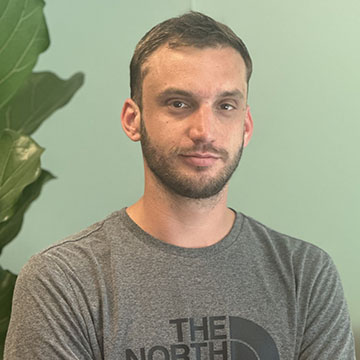
Nicolas Huyghe
Read BioI am a bioinformatician in the laboratory of Prof. Vikkula. In 2017, I obtained a master’s degree in biomedical science. For my master’s thesis, I studied the activation of TGF-β1 by human T regulatory cells in the laboratory of Prof. Lucas. I then completed a four-month internship at Kobe University in Japan, where I investigated the nucleotide excision repair mechanism in xeroderma pigmentosum disease.
In 2018, I began my PhD in translational research in the laboratory of Prof. Van den Eynde. During my PhD, I studied and characterized the immune microenvironment of metastatic colorectal cancer in a clinical trial called AVETUXIRI (NCT03608046). My interest in bioinformatics grew during my thesis work, leading me to learn coding to perform RNA-seq analysis and spatial immunofluorescence staining analysis.

Ondine Cleaver
Read Bio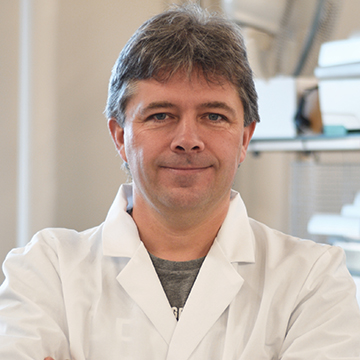
Pascal Brouillard
Read BioPayel Chatterjee

Salim Seyfried
Read Bio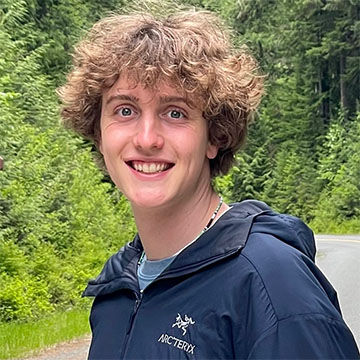
Sebastian Ramisch
Read BioSebastian is a Master’s student in Cancer and Stem Cell Biology at Utrecht University and a visiting researcher in the Penninger Lab in Vancouver. An organoid enthusiast at heart, he’s currently building a next generation organoid-on-chip model that integrates heart, blood vessel and bone marrow organoids on a fluidic chip to replicate the complex immune dynamics of ischemia-reperfusion injury.
When he’s not wrangling flow cytometry plots or figuring out why his neutrophils won’t behave, he’s probably hiking, swimming, or planning how to turn his car into a camper van. He’s also learning R, Spanish, and patience - with varying levels of success. Long story short, he’s passionate about organoid research, curious about all things science, and loves spending time outdoors.

Stephen Spurgin
Read Bio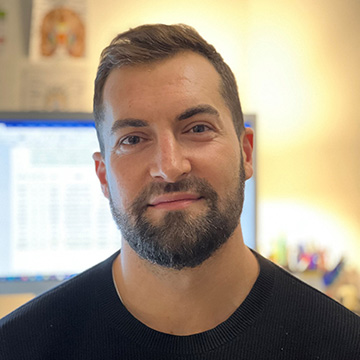
Thibault Coste
Read Bio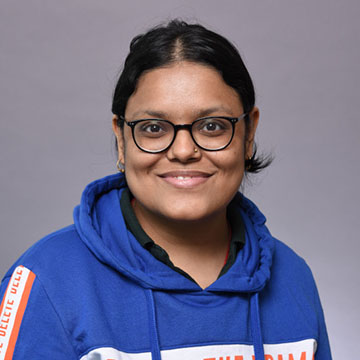
Tuli Pramanik
Read Bio